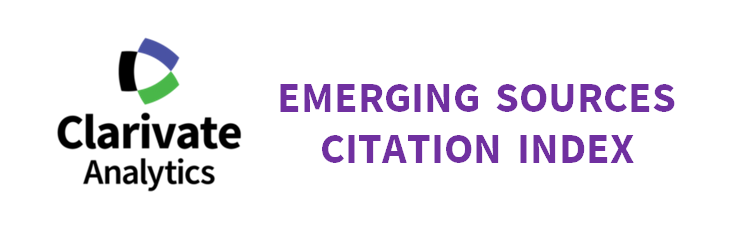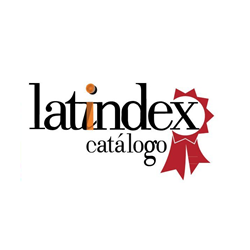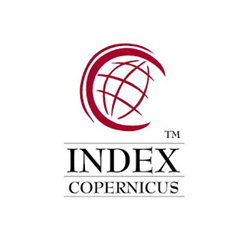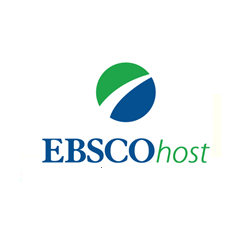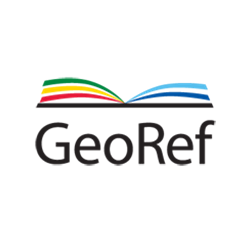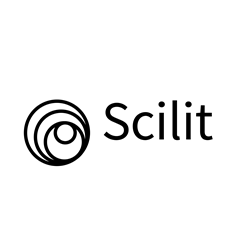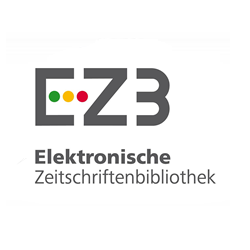Mejora de los sistemas de riego inteligentes mediante la selección energéticamente eficiente de clusters en WSN heterogéneas
DOI:
https://doi.org/10.17981/ingecuc.19.2.2023.01Palabras clave:
riego inteligente, WSNs, protocolos de encaminamiento, eficiencia energéticaResumen
Introducción— Los sistemas de riego inteligente requieren una comunicación fiable y energéticamente eficiente entre los sensores de una Red Inalámbrica de Sensores (WSN) y el sistema de control.
Objetivo— Para hacer frente a este reto, este trabajo presenta varios protocolos de selección basados en clusters, basados en el Protocolo de Elección Estable (SEP) y en la Agrupación Distribuida de Eficiencia Energética (DEEC).
Metodología— Los protocolos presentados dividen el campo agrícola en subcampos para reducir el consumo de energía entre los sensores lejanos y la Estación Base (EB).
Resultados— La comparación con los protocolos tradicionales utilizando métricas de evaluación como el rendimiento de la red, la estabilidad, el periodo de inestabilidad y la vida útil, muestra que los protocolos presentados superan en términos de todas las métricas.
Conclusiones— Los resultados indican la eficacia de los protocolos propuestos para prolongar la vida útil de la red y mejorar la eficiencia energética en WSN heterogéneas, apoyando así el rendimiento de los sistemas de riego inteligentes. Numéricamente, utilizando los protocolos propuestos, la vida útil de la red aumenta un 23% en comparación con el SEP convencional.
Descargas
Citas
A. Aldegheishem, N. Alrajeh, L. García & J. Lloret, “SWAP: Smart WAter Protocol for the Irrigation of Urban Gardens in Smart Cities,” IEEE Access, vol. 10, pp. 39239–39247, Mar. 2022. https://doi.org/10.1109/ACCESS.2022.3165579
M. Edodi, O. Ogidan & A. Amusan, “Smart Irrigation System: A Water and Power Management Approach,” presented at 4th International Conference on Disruptive Technologies for Sustainable Development, NIGERCON, LA, NG, 5-7 Apr. 2022. https://doi.org/10.1109/NIGERCON54645.2022.9803183
L. Samaniego Campoverde, M. Tropea & F. De Rango, “An IoT based Smart Irrigation Management System using Reinforcement Learning modeled through a Markov Decision Process,” presented at IEEE/ACM 25th International Symposium on Distributed Simulation and Real Time Applications, DS-RT, VAL, ES, 27-29 Sept. 2021. https://doi.org/10.1109/DS-RT52167.2021.9576130
S. Patel, S. Parikh & S. Patel, “Irrigation to Smart Irrigation and Tube Well Users,” presented at International Conference on Computing, Communication and Green Engineering, CCGE, PUN, IN, 23-25 Sept. 2021. https://doi.org/10.1109/CCGE50943.2021.9776479
J. Zhang, R. Tao, J. Du & L. Dai, “Energy-Efficient Sparsity-Driven Speech Enhancement in Wireless Acoustic Sensor Networks,” IEEE/ACM Trans Audio Speech Lang Process, vol. 31, pp. 215–228, Nov. 2023. https://doi.org/10.1109/TASLP.2022.3221013
D. Lee, J. Oh, T. Ha, J. Lee, Y. Jeon & S. Cho, “A survey of Energy-saving routing protocol for Wireless Sensor Networks,” presented at 13th International Conference on Information and Communication Technology Convergence, ICTC, JJ ISL, KOR, 19-21 Oct. 2022. https://doi.org/10.1109/ICTC55196.2022.9952621
A. Yumuşak & A. Demirtaş, “Analysis of the Effect of Delay from Source Node to Sink on Lifetime in Wireless Sensor Networks,” presented at 30th Signal Processing and Communications Applications Conference, SIU, SFB, TR, 15-18 May. 2022. https://doi.org/10.1109/SIU55565.2022.9864972
Z. Nurlan, T. Zhukabayeva, M. Othman, A. Adamova & N. Zhakiyev, “Wireless Sensor Network as a Mesh: Vision and Challenges,” IEEE Access, vol. 10, pp. 46–67, Dec. 2021. https://doi.org/10.1109/ACCESS.2021.3137341
V. Chaturvedi, S. Choubey & S. Tripathi, “Cluster-based routing protocols in wireless sensor networks”, IRJET, vol. 5, no. 12, pp. 61–67, Dec. 2018. Available from https://www.irjet.net/archives/V5/i12/IRJET-V5I1213.pdf
A. Hassan, W. Shah , M. Iskandar & A. Mohammed, “Clustering Methods for Cluster-based Routing Protocols in Wireless Sensor Networks: Comparative Study”, Int J Appl Eng Res, vol. 12, no. 21, pp. 11350–11360, Jan. 2017. Available from https://www.ripublication.com/ijaer17/ijaerv12n21_116.pdf
A. Chatap & S. Sirsikar, “Review on Various Routing Protocols for Heterogeneous Wireless Sensor Network”, presented at International Conference on I-SMAC (IoT in Social, Mobile, Analytics and Cloud), I-SMAC, PALL, IN, 10-11 Feb. 2017. https://doi.org/10.1109/I-SMAC.2017.8058388
S. Singla & K. Kaur, “Comparative Analysis of Homogeneous N Heterogeneous Protocols in WSN”, IIJSR, vol. 5, no. 6, pp. 1300–1305, Jun. 2016. Available from https://www.ijsr.net/archive/v5i6/13061601.pdf
M. Ayoob, Q. Zhen, S. Adnan & B. Gull, “Research of Improvement on LEACH and SEP Routing Protocols in Wireless Sensor Networks”, presented at International Conference on Control and Robotics Engineering, ICCRE, SGP, SG, 02-04 Apr. 2016. https://doi.org/10.1109/ICCRE.2016.7476141
P. Kumar, M. Singh & U. Triar, “A Review of Routing Protocols in Wireless Sensor Network”, IJERT, vol. 1, no. 4, pp. 1–14, Jun. 2012. https://doi.org/10.17577/IJERTV1IS4013
A. Hossan & P. Choudhury, “DE-SEP: Distance and Energy Aware Stable Election Routing Protocol for Heterogeneous Wireless Sensor Network,” IEEE Access, vol. 10, pp. 55726–55738, May. 2022. https://doi.org/10.1109/ACCESS.2022.3177190
L. Hamad, T. Dağ & T. Güçlüoğlu, “An Improved Hybrid Stable Election Routing Protocol for Large Scale WSNs,” presented at 29th Signal Processing and Communications Applications Conference, SIU, IST, TR, 9-11 Jun. 2021. https://doi.org/10.1109/SIU53274.2021.9477878
A. Kashaf, N. Javaid, Z. Khan & I. Khan, “TSEP: Threshold-Sensitive Stable Election Protocol for WSNs,” presented at 10th International Conference on Frontiers of Information Technology, FIT, ISL, PKST, 17-19 Dec. 2012. https://doi.org/10.1109/FIT.2012.37
M. Gangrekar, D. Dabhade, A. Nandgaonkar & S. Mahiman, “Maximizing the Lifetime of Wireless Sensor Network Using Z-SEP”, IJARCSSE, vol. 4, no. 6, pp. 1185–1191, Jun. 2014.
Z. Gao, L. Ge & F. Zhao, “Research on Large-scale Distributed Energy Cluster Control Technology,” presented at China International Conference on Electricity Distribution, CICED, CGSH, CN, 7-8 Sept. 2022. https://doi.org/10.1109/CICED56215.2022.9929123
B. Elbhiri, S. Rashid, S. El Flkhi & D. Aboutajdine, “Developed Distributed Energy-Efficient Clustering (DDEEC) for heterogeneous wireless sensor networks”, presented at 5th International Symposium on I, V Communications and Mobile Network, RBT, MA, 30 Sept. 2010 - 2 Oct. 2010. https://doi.org/10.1109/ISVC.2010.5656252
S. Parul & S. Ajay, “E-DEEC- Enhanced Distributed Energy Efficient Clustering Scheme for heterogeneous WSN”, presented at 1st International Conference on Parallel, Distributed and Grid Computing, PDGC 2010, SLN, IN, 28-30 Oct. 2010. https://doi.org/10.1109/PDGC.2010.5679898
A. Agarwal & V. Nehra, “Trade-off analysis for different Sink locations in DEEC Protocol,” presented at Second International Conference on Computer Science, Engineering and Applications, ICCSEA, GNPR, IN, 8 Sept. 2022. https://doi.org/10.1109/ICCSEA54677.2022.9936143
S. Iqbal, S. Shagrithaya, G. Sandeep & B. Mahesh, “Performance Analysis of Stable Election Protocol and its Extensions in WSN”, presented at International Conference on Advanced Communication, Control and Computing Technologies, ICACCCT, RTHM, IN, 8-10 May. 2014. https://doi.org/10.1109/ICACCCT.2014.7019189
S. Gupta & & S. Singh, “Constrains and their Impacts for Improving Latency of DEEC based Routing Protocols for IOT-WSN,” presented at 6th International Conference on Computing, Communication and Automation, ICCCA, ARD, RO, 17-19 Dec. 2021. https://doi.org/10.1109/ICCCA52192.2021.9666210

Descargas
Publicado
Cómo citar
Número
Sección
Licencia
Derechos de autor 2023 INGE CUC

Esta obra está bajo una licencia internacional Creative Commons Atribución-NoComercial-SinDerivadas 4.0.
Los artículos publicados son de exclusiva responsabilidad de sus autores y no reflejan necesariamente las opiniones del comité editorial.
La Revista INGE CUC respeta los derechos morales de sus autores, los cuales ceden al comité editorial los derechos patrimoniales del material publicado. A su vez, los autores informan que el presente trabajo es inédito y no ha sido publicado anteriormente.
Todos los artículos están bajo una Licencia Creative Commons Atribución-NoComercial-SinDerivadas 4.0 Internacional.


 English
English
 Español (España)
Español (España)
